There are too many important things about Burkina Faso. The recent military coup has made the country unpopular among its African counterparts and the world at large. But this doesn’t rub off the abundance riches in history and culture the country possesses, as some of them are put down in this article.
Introduction
Burkina Faso is a landlocked country located in the West African region of the Africa continent. The country is round-bordered by only West African countries. It has Mali on its Southwest, Togo and Ghana on its South. Niger on its Northeast, Benin on its Southeast and Ivory Coast to the Southwest.
It covers an area of 274,223 kilometer square. Burkina Faso has a population of over 23 million people. Its citizens are known as Burkinabes. Burkina Faso is a member of the United Nations, La Francophonie and the organisation of Isamic co-operation. The West African country is currently suspended from ECOWAS and the African Union due to its democratic government overthrown by the military.
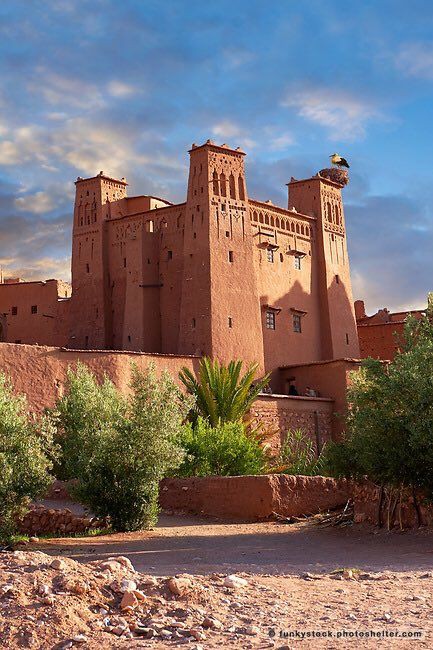
Here Are 12 Important Things About Burkina Faso You Need To Know;
Mossi Kingdoms
Ouagadougou housed the largest Mossi kingdom and the king was known as the Mogho Naaba. He serves as the Emperor of the Mossi kingdoms back then. The first kingdom was founded when Dagomba warriors from the present-day Ghana region and the Mandi warriors settled into the area and married with the local people there.
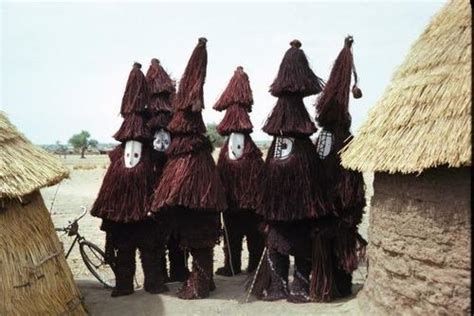
In the 13th century, the power tussle started amongst the kingdoms on the centralization of the military and politics. This led to conflicts between the Mossi kingdoms and many other powerful states in the region. This went on for centuries until the French took over in the late 19th century.
As a result of the colonization, the French created the French Upper Volta which mostly used the Mossi administrative structures for many decades in governing the country.
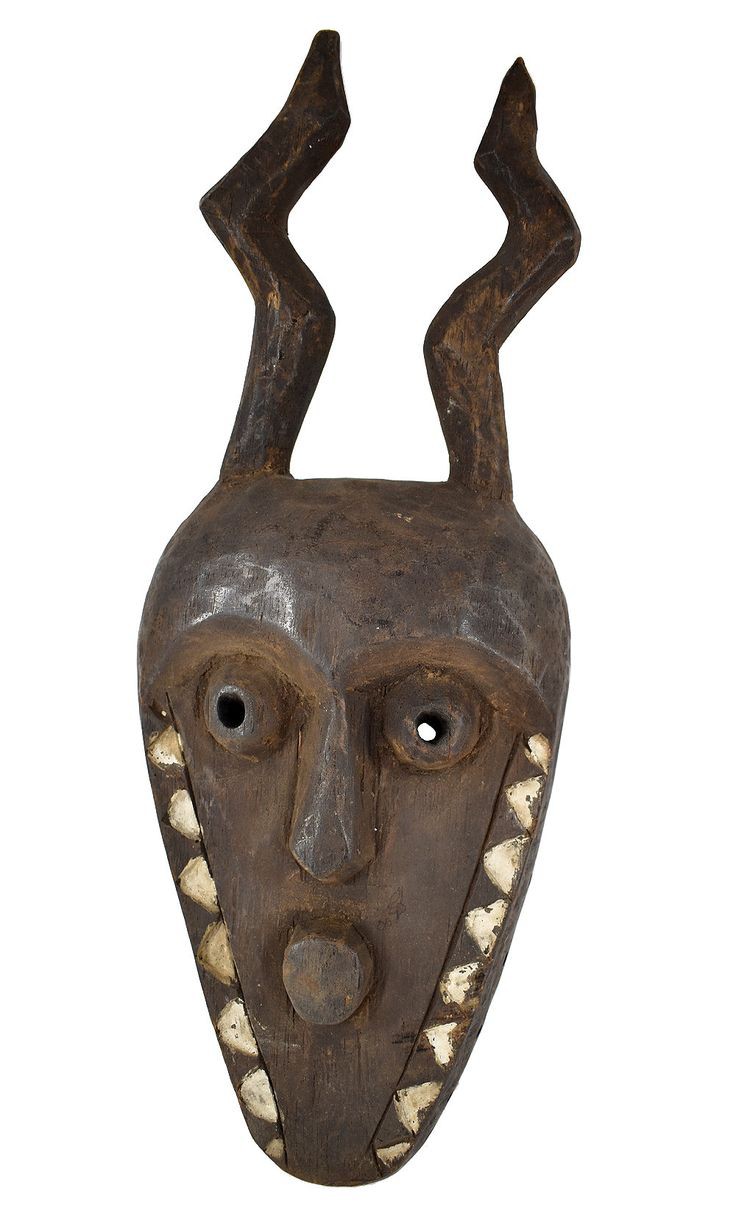
However, a few number of Mossi kingdoms are still in existence as constituent monarchies. The most notable one is the Naba Baongo II, he currently reigns as Mogho Naba of Ouagadougou.
Similarly, the kingdoms of Yatenga, Tenkodogo, Boussouma, and Fada N’gourma are still much in existence, with each to their own monarchs. They no longer hold sovereignty, but they still retain some political and cultural influence in the country.
A French Colony
In the 19th century, many European countries competed for control over ‘Upper Volta’, Burkina Faso name at the time. In 1896, the country became a French protectorate and became a separate constituent territory of French in West Africa.
It was formed from territories that had been part of the colonies of Senegal, Niger, and the Cotê d’Ivoire. The French colony was however dissolved on the 5th of September 1932. But part of the country was still being administered, as the Cotë d’Ivoire, French Sudan, and the colony of Niger.
15 years later, after the World War II had passed by, the colony was thereby revived as a part of the French Union, with its previous boundaries. Late 1958, the country was reconstituted as self-governing Republic of Upper Volta within the French community.
Upper Volta gained its independence 2 years after in 1960.
Upper Volta River
The three parts of Upper Volta river are the many of the fascinating things about Burkina Faso. The name Upper Volta shows the country contains the upper part of the Volta River. The river is divided into three parts. They are: Black Volta (Mouhour), White Volta (Nakambe) and Red Volta (Nazinon).
Furthermore, Ghana taps its three major rivers from these Volta Rivers. As a result, Northern Ghana is fully supplied with fresh water for domestic use and farming. Black Volta is the longest of these rivers, as it is an extensive 1,352 kilometers long.
Thomas Sankara
Thomas Isidore Noël Sankara was a Burkinabi military officer. He was a marxist revolutionary and Pan-Africanist. He is viewed by supporters as a charismatic and iconic figure of the revolutions and a powerful advocate for Pan-Africanism and worker’s rights.
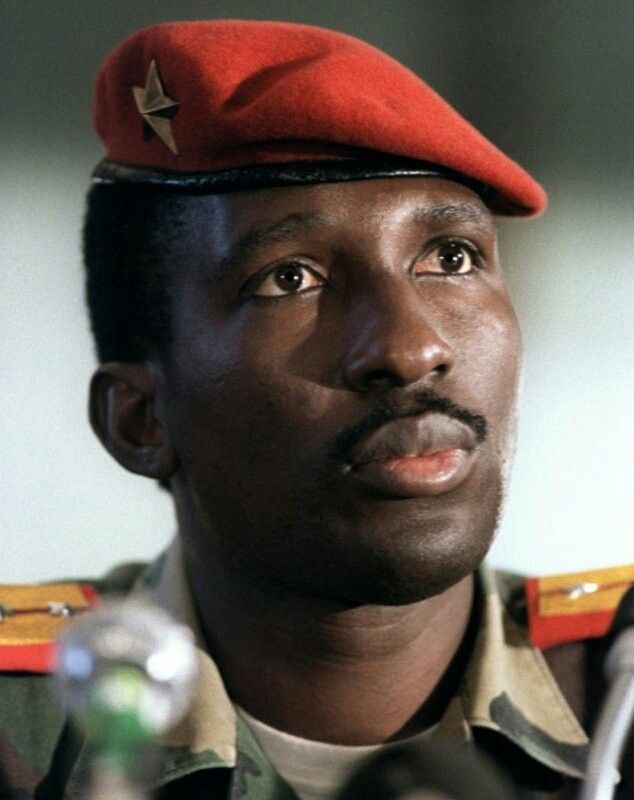
At aged 33, Sankara became the President of the Republic of Upper Volta and launched an unprecedented series of ecological, social and social reforms. He also renamed the country from ‘Upper Volta’ to Burkina Faso.
Furthermore, his policies were centered on anti-imperialism and he rejected loans and capital from organizations such as the International Monetary Fund and foreign backs. However, he welcomed some foreign aid to drive domestic revenue and make the country self-sufficient.
Sankara’s local policies were about how to prevent famine, agrarian expansion, land reforms, suspension of rural poll taxes, etc. In addition, he focused on nationwide literacy campaigns, and vaccination programs against meningitis, yellow fever, and measles. He also built schools, health centers, and water reservoirs and did several infrastructure projects.
Moreover, he outlawed female genital mutilation, forced marriages, and polygamy in the country. He set up Popular Revolutionary Tribunals to prosecute public officers charged with political crimes and corruption. As a result, this led to his being criticized by Amnesty International for human rights violations and extrajudicial executions of political opponents.
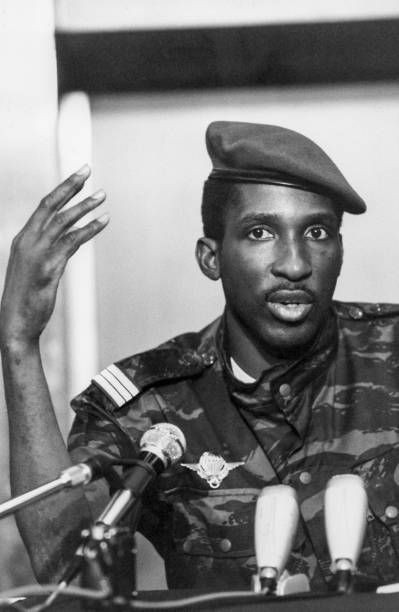
However, he remained an icon to many African countries for his revolutionary programs for African self-reliance. On the 15th of October 1987, Sankara was assassinated by troops led by Blaise Compaoré. He assumed the leadership of the country shortly after.
Ditanyè, Anthem Of Victory
Also known as L’Hymne de la Victoire, which means ‘Anthem of Victory’. The lyrics were written by Former President Thomas Sankara, who was also a jazz guitarist. The composer of the melody is unknown but the composition credit has also been attributed to the Ex. president.
It was adopted during his presidency in a decree issued on the 2nd of August, 1984. It became effective on the 4th of August, that same year, as it was the first anniversary of Sankara’s accession to the presidency. The decree also renewed the country from ‘Upper Volta’ to its current name, as the ‘Anthem of Victory’ replaced the “Hymne National Voltaïque, the anthem of Upper Volta.
Ouagadougou
Ouagadougou is the capital of Burkina Faso. The city has an international airport and is linked by rail to Abidjan in Cotê d’Ivoire.
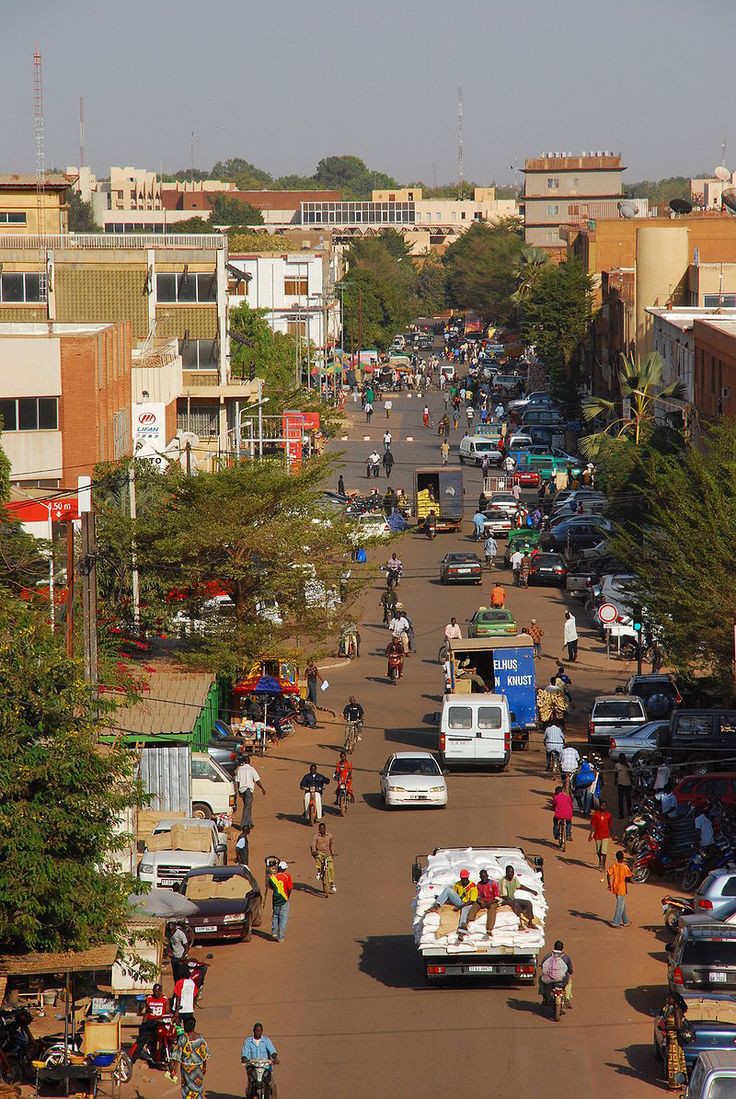
It is the administrative, cultural, community, and economic center of the nation. It is also the country largest city and often called “Ouaga” and its inhabitants go by the name Ouagalais. The spelling of the name of the name Ouagadougou was derived from the French orthography common in former French African colonies.
Ouagadougou’s primary industries are food processing and textiles. It has one of West Africa’s largest markets, which burned down in 2003 and has since been re-opened with better facilities and improved fire-prevention measures. The capital also has other attractions such as the National Museum of Burkina Faso, the National Museum of Music, and several craft markets.
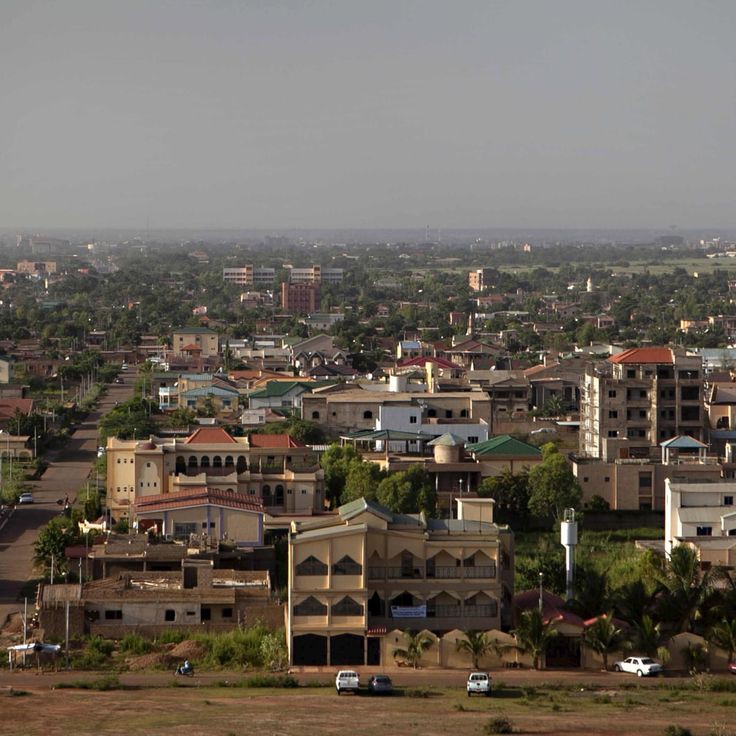
Burkinabes Speak French And Other Indigenous Languages
French is the official language in the country as a result of the country being a former French protectorate. The language is majorly spoken among the educated and elites of the country.
However, a large amount of the rural citizens and the uneducated ones speak over 66 indigenous languages. Mooré is spoken by about 52.5% of the population, mainly around Ouagadougou. Mande languages predominantly spoken in the West, while Gourmantché and Bissa language are spoken in the East and South respectively.
Education for the deaf in Burkina Faso uses American Sign Language, which was introduced by the deaf American missionary, Andrew Foster. The Burkina Sign language is used in Ouagadougou.
Burkina Faso Has Fertile Land
Southern Burkina Faso is green with forests and fruit trees, as its north is full of desert. Burkina Faso is Africa’s leading producer of cotton. Alongside cotton, the main agricultural exports are seasame seeds, beans and mangoes.
The most popular type of farming in Burkina Faso is the subsistence farmimg with staple foods being predominant.
During the summer months between June and September, many of the villagers abandon their homes, as people head to the farm for farming.
Sorghum, maize, rice, peanuts, millet and cassava are some of the main crops being cultivated in the land. However, despite the fertile lands in the south, and the pastoral lands in the north, the country is increasingly becoming food insecure because of its lack of modern practices and population pressure.
Mossi Ethnic Group
Mossi ethnic group are a tribe of brilliant horsemen in Burkina Faso. The country was ruled by them and it is still mostly dominated by them. They repelled slave raiders and other rivals and remained the rulers of Burkina Faso for over 400 years before the French took over their kingdom.
One of the captains of the French, Captain Paul Voulet was a disaster to the local people there He struck victims’ heads on poles, roasted children over fires, and killed soldiers whom he was displeased with.
Voulet was however cautioned by his superiors and he told them that he was no longer French. He referred to himself as a “black chief” who would found his own empire.
Shortly after, he was killed and the French was disappointed that he dirtied the civilising mission in their colonies. They attributed his terrible activities to the maddening heat of the continent.
Manganese And Gold
The most important minerals in Burkina Faso are manganese and gold. These two mineral resources are the main sources of the country’s wealth.
Gold mines are situated in Paura, Southwest of koudougou. Gold deposits can be found near Sebba and Dori-Yalogo in the North.
Also, reserves of nickel, zinc, bauxite, silver are found in the country. Burkina Faso’s substantial manganese deposits at Tambao in the Northeast is one of the world’s richest sources of the mineral. However, exploitation is limited by existing transport inadequacies.
A young population
Burkina Faso is a country mostly full with young blood. More that 65% of the population is below the age of 25. This is a long term economic opportunity for the country, as it possesses a lot of human resources in the near and unforseeable future.
However, with poor planning and a lack of steady and commensurate growth, this becomes a curse rather than a blessing.
Poor Electricity
Thomas Sankara dream was to enlighten his country through his socio-economic reforms, but this didn’t come to life because he was assassinated.
The power issue in Burkina Faso is one of the lowest on the African continent. 56% of the urban areas are being electrified while 1% of electrification is being distributed to the poor and rural areas in the country. The poor would have been the first beneficiaries of Sankara’s power revolution.
Although, the effort to electrify the rural areas is on going.
Conclusion
Burkina Faso which means ‘land of the honest men’ is a country that has a lot of riches in history and has witnessed drama over time. From its capital to its colonization story to the famous Thomas Sankara, and even to its latest coup.









